Are you feeling the pressure of upcoming deadlines, or maybe facing some unexpected challenges that make managing your time a bit tougher? You're not alone, and seeking a grace period extension could be the perfect solution to help ease that stress. In this article, we'll guide you through crafting a persuasive letter that makes your case clearly and effectively. So, let's dive in and discover how you can secure that much-needed extension!

Clear Purpose Statement
A clear purpose statement for a grace period extension request may specify the need for additional time due to unforeseen circumstances affecting obligations. For instance, a student may experience unexpected health issues (such as a serious illness or injury) that hinder academic progress, requiring an extension for assignment submission deadlines. Alternatively, a business may encounter supply chain disruptions (such as delays from international shipping routes) that impact project timelines, justifying the request for a grace period to ensure quality compliance. In both cases, the purpose statement should concisely articulate the necessity for an extension and the potential consequences of failing to accommodate the request.
Polite and Courteous Tone
A grace period extension is often requested under circumstances such as financial difficulties or personal emergencies. Many institutions or organizations understand the necessity for flexibility in deadlines. Articulating the request requires a respectful tone, acknowledging the policies while also expressing genuine need. A well-structured request often includes reference to specific dates, policies, and any relevant documentation. Including a closing statement that expresses gratitude for consideration can reinforce a courteous approach.
Justification and Supporting Details
A grace period extension is often necessary for individuals facing unforeseen circumstances that impede timely completion of obligations, such as academic assignments or financial payments. For instance, students enrolled in universities like Harvard may encounter personal emergencies or health issues, resulting in delays. Providing supporting documentation, such as a medical note (issued by a physician) or evidence of family emergencies (like a death certificate or hospital admission records), strengthens the request. Specific timelines are crucial, highlighting the original deadline (e.g., May 15, 2023) and proposed new deadline (e.g., June 15, 2023), ensuring clarity. Articulating the impact of not receiving the extension, such as potential academic probation or severe financial penalties, further emphasizes the need for consideration.
Specific Extension Duration Requested
A grace period extension request typically outlines the needed duration while providing context for the request. For example, if an individual is seeking a 30-day extension on a loan repayment due to unforeseen circumstances such as temporary unemployment or medical emergency, it should clearly state the start date of the original period. Consideration of financial stability and efforts made to meet obligations can add depth to the context. Clear communication through email or letter format along with personal identification details and account numbers strengthens the request's legitimacy.
Contact Information for Follow-up
A grace period extension request often requires detailed contact information for effective follow-up. This should include key items such as the applicant's full name, which ensures proper identification. An email address, such as john.doe@example.com, allows direct and rapid communication. A phone number, like +1-202-555-0171, provides an additional method to reach the applicant. Including the mailing address, for instance, 123 Main St, Springfield, IL 62701, offers the organization a way to send official correspondence. Furthermore, specifying the preferred method of contact enhances the likelihood of timely responses, facilitating smooth communication during the grace period review process.

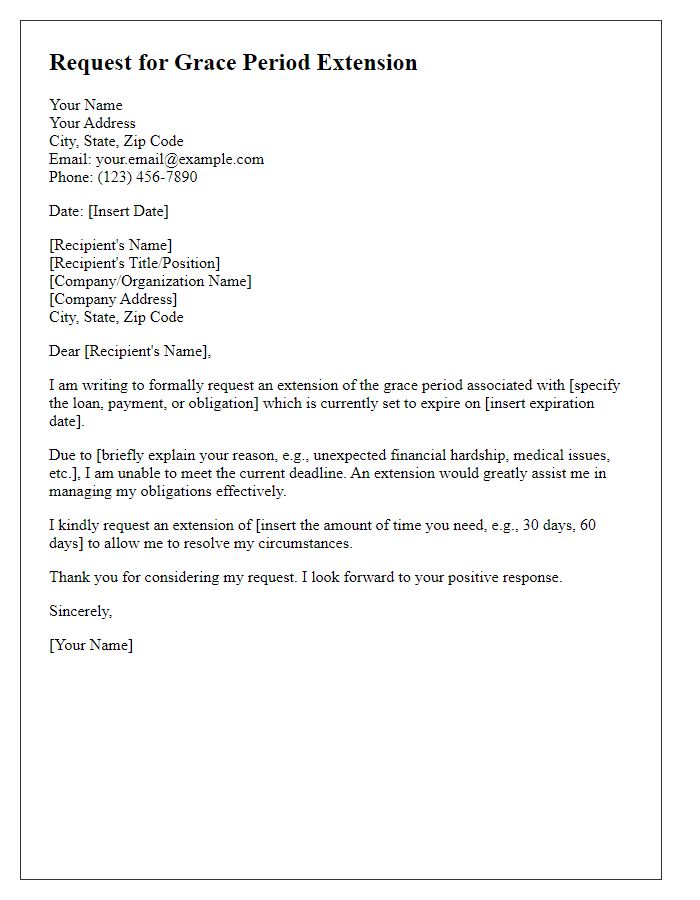
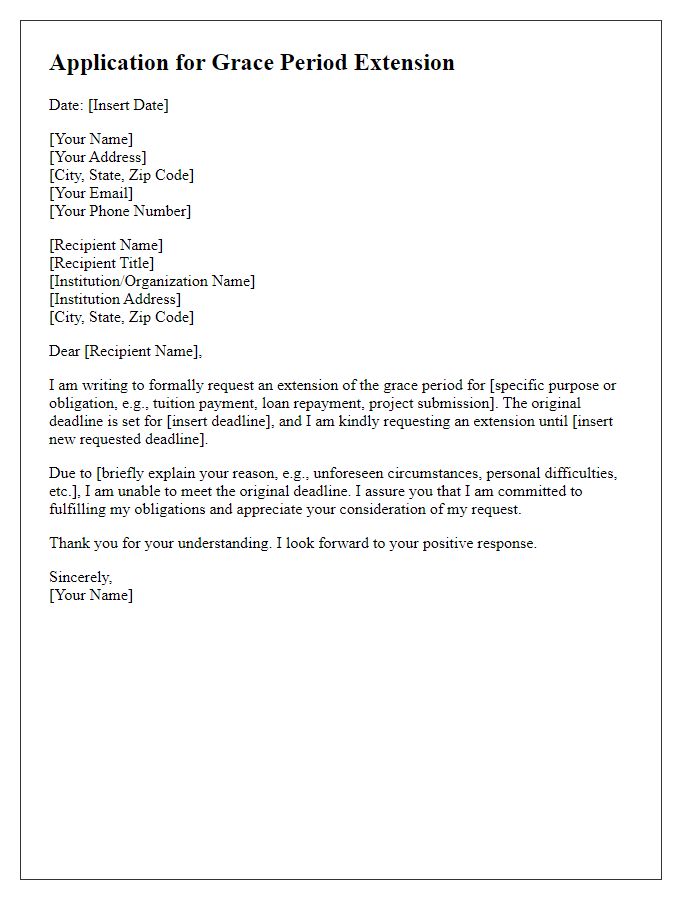
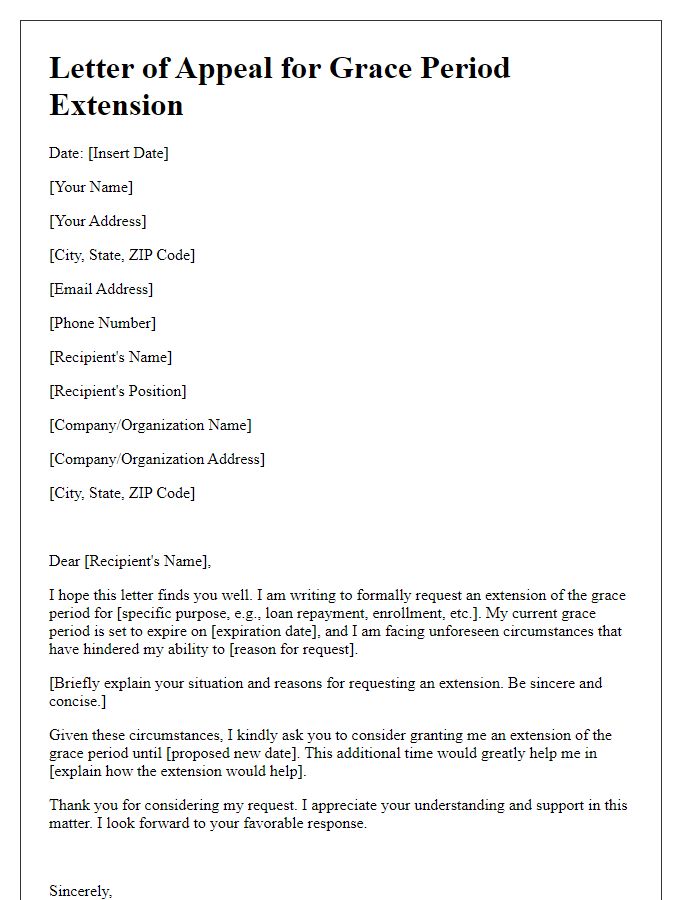
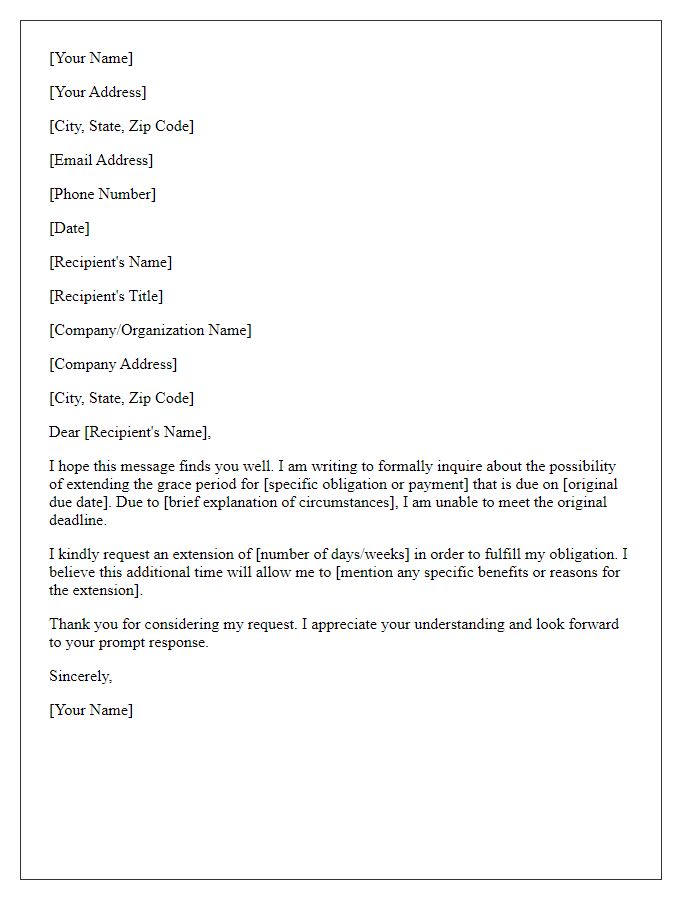
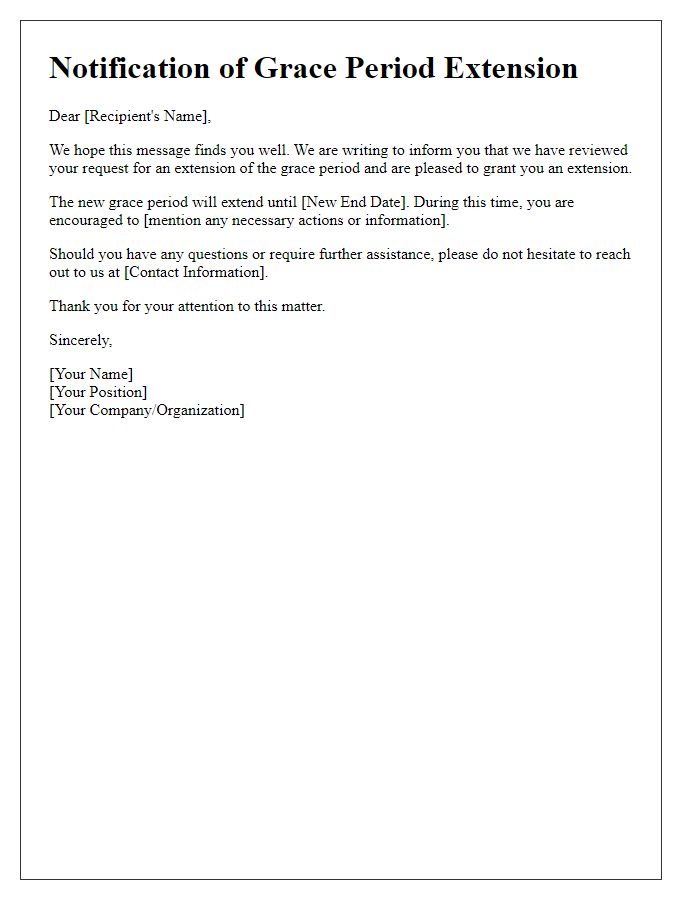
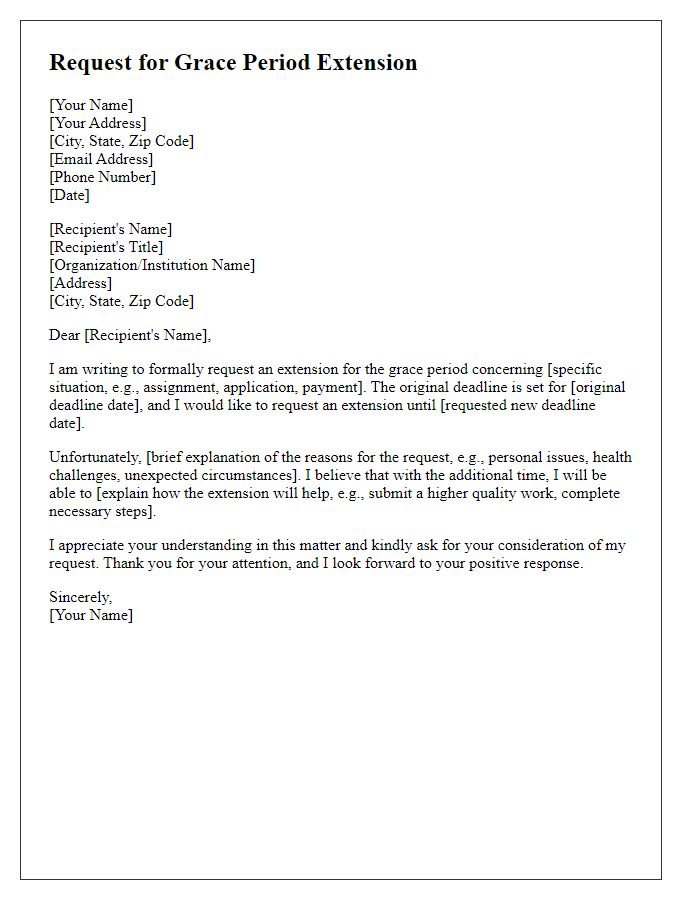
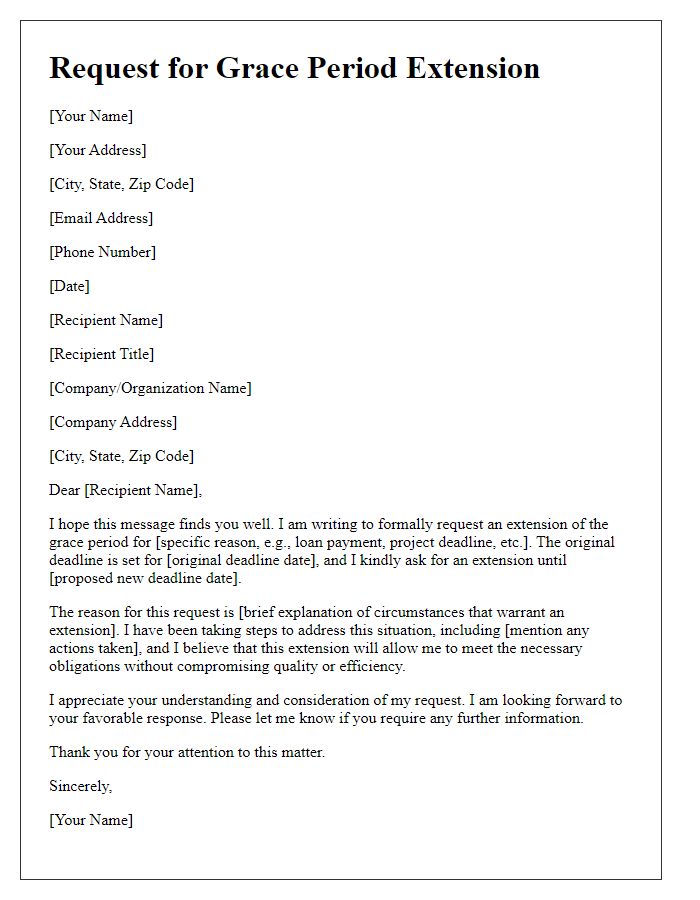
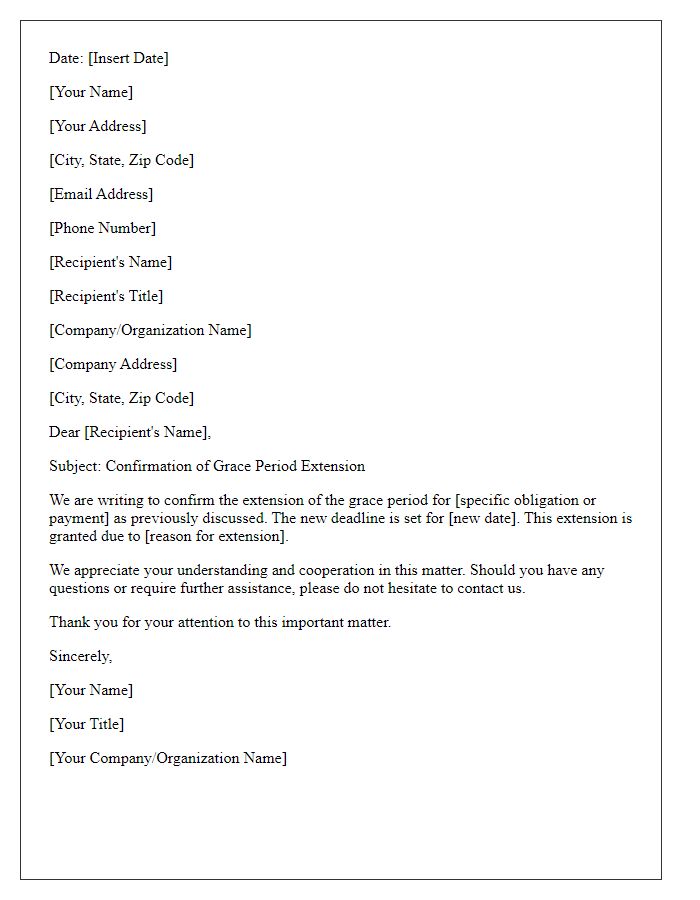
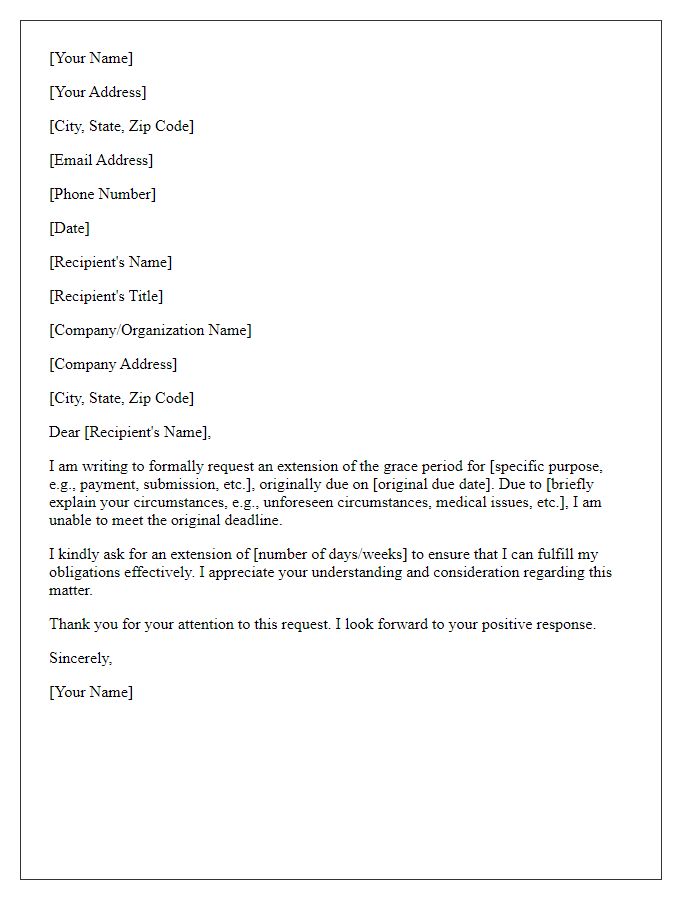
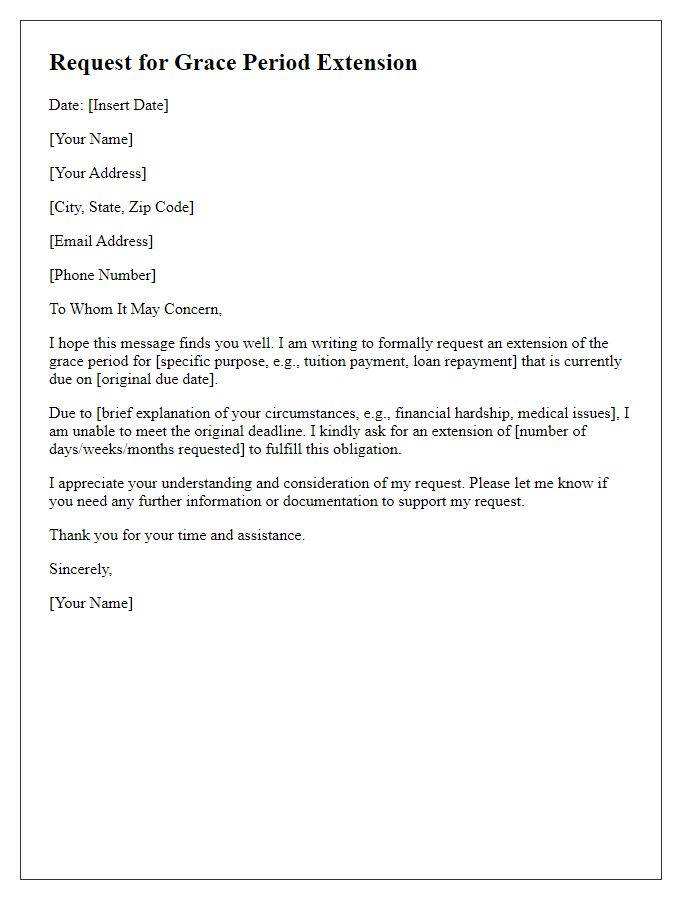

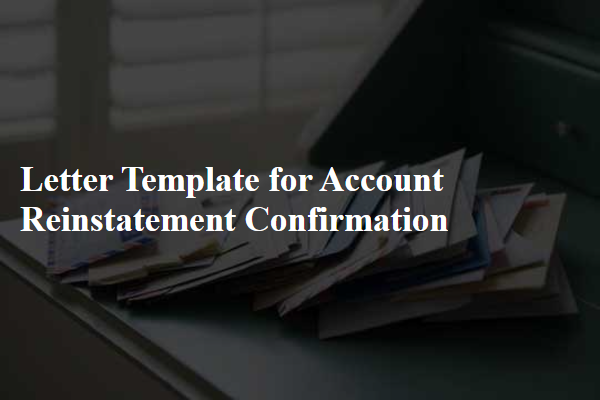
Comments